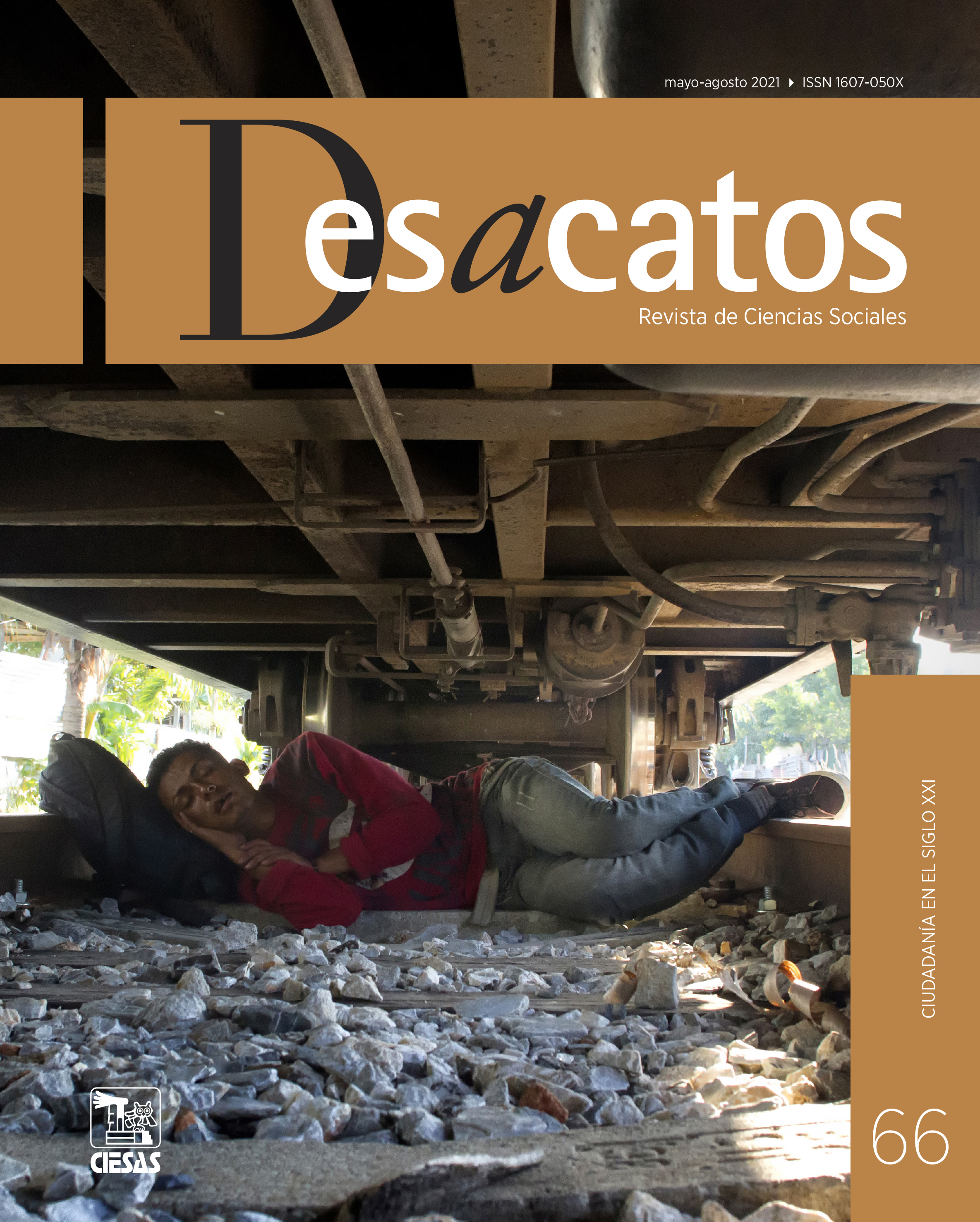Abstract
In 2006, the rural development policies carried out by the Frente Amplio government in the Uruguayan city of Bella Unión were challenged by an autonomic politics that prescribed access to land from its own “state of necessity”. Through the testimonies of their protagonists and resorting to primary and secondary sources, I show how such politics subtracted from the established legal and institutional frameworks. From an anthropology of subjective singularities, I argue the irreducibility between state policies and autonomic politics. I show that the latter institute their own conditions of possibility, can be identified on their own terms, and only subsist for the duration of the process of subjectivation that made them possible and necessary.
References
De Vries, Pieter, 2007, “Don’t compromise your desire for development! A Lacanian/Deleuzian rethinking of the anti-politics machine”, en Third World Quarterly, vol. 29, núm. 1, pp. 25-43.
De Vries, Pieter, 2010, “Redimir la promesa utópica del desarrollo: hacia un mundo, una mundialización, una modernidad”, en Victor Bretón, Saturno Devora a sus Hijos. Miradas críticas sobre el desarrollo y sus promesas, Icaria, Barcelona, pp. 87-126.
Díaz, Pablo, 2009, Sociología de las ocupaciones de tierras, Nuestra América; Nordam, Buenos Aires.
González, Yamandú, 1994, Los olvidados de la tierra. Vida, organización y luchas de los sindicatos rurales, Nordam, Montevideo.
Guha, Renajit, 1992, “Domination without hegemony and its historiography”, en Renajit Guha, Subaltern Studies VI, Oxford University Press, Delhi, pp. 210-309.
Hayem, Judith, 2012, “The Voucher Strike: Workers Political Subjectivities in Post-Apartheid South Africa”, en Journal of Asian and African Studies, vol. 47, núm. 5, pp. 516-529.
Hayem, Judith, 2008, La figure ouvrière en Afrique du Sud, Karthala, Paris.
Lazarus, Sylvain,1996, Anthropologie du nom, Editions du Seuil, Paris.
Lazarus, Sylvain, 2013, L’intelligence de la politique, Al Dante, Paris.
Merenson, Silvina, 2010, “Cuando ser indio no rinde: sociedad política, particularismo y excepción en las narrativas nacionales del Uruguay”, en Espaço Ameríndio, vol. 2, núm. 4, pp. 172-190.
Merenson, Silvina, 2016, Los peludos: cultura, política y nación en los márgenes del Uruguay, Gorla, Buenos Aires.
Michel, Natacha, 2013, “Préface”, en Natacha Michel y Sylvain Lazarus, L’intelligence de la politique, Al Dante, Paris, pp. 7-38.
Michel, Natacha, 1996, “Le temps de la pensée”, en Horlieu, núm. 5, pp. 1-11.
Moraes, Alex, 2019, “Breves anotações sobre ‘pensar no registro do possível’, en Plural, vol. 2, num. 3, pp. 195-201.
Moraes, Alvaro, 2012, ¿Campo en disputa? El acceso a la tierra de los trabajadores de UTAA al “Campo Placeres” en Bella Unión, Tesis de doctorado, Universidad de la República Oriental del Uruguay, Montevideo.
Neocosmos, Michael, 2009, “The Political Conditions of Social Thought and the Politics of Emancipation: an introduction to the work of Sylvain Lazarus”, en Jacklin Heather y Peter Vale, Re-imagining the social in South Africa: critique and post-apartheid knowledge, UKZN Press, Durban, pp. 111-138.
Neocosmos, Michael, 2016, Thinking Freedom in Africa, Wits University Press, Joanesburgo.
Neocosmos, Michael, 2012, “Political Subjectivity and the Subject of Politics:
Thinking Beyond Identity from the South of Africa”, en Journal of Asian and African Studies, vol. 47, núm. 5, pp. 465-481.
Rosencof, Mauricio, 1989, La rebelión de los cañeros y los hombres del arroz, TAE, Montevideo.

